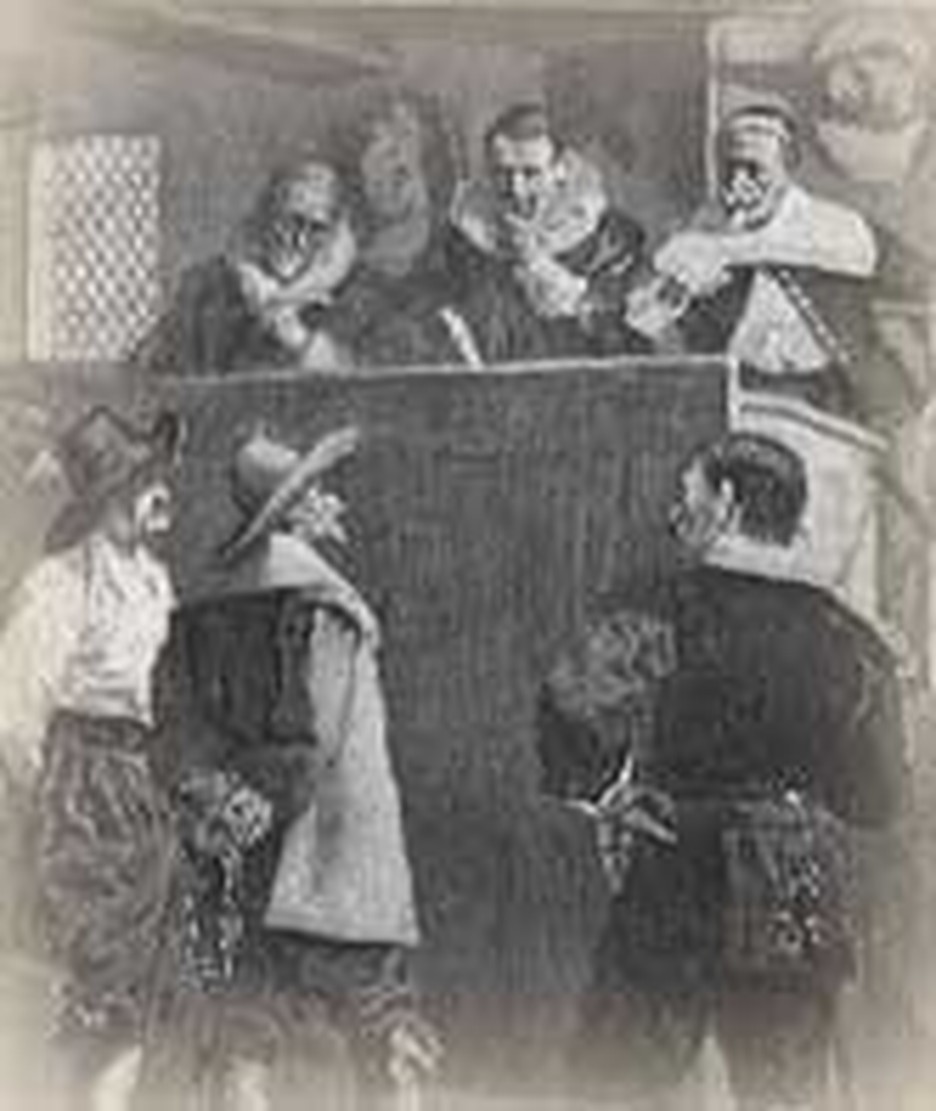
Religion was taken seriously in the seventeenth century in Europe and America because most people still believed that their faith dealt with issues of truth, not simply the opinions of men. In the colony of Massachusetts there were strict laws governing the religious beliefs of society. If you didn't agree with those beliefs, the colonial leaders thought you should go live somewhere else.
Quakers were frequently asked to leave Massachusetts. The group had been founded in the 1640s by the Englishman George Fox. After finding no peace for his soul in the churches of his day, Fox had begun to give up all hope when he had the experience of a voice speaking to him. He believed that this inner voice was the voice of God, and that he could receive direct revelation through the Holy Spirit. Fox began speaking of hie new, inward spiritual faith, and the Society of Friends--known as Quakers--followed his teachings. They emphasized the direct revelation of Christ to the individual's soul and minimized an ordained ministry and the traditional forms of worship in the church. Many Christians objected to the Quakers' belief in an inner revelation separate from the Word of God.
In July, 1656, the ship Swallow anchored in Boston harbor with two Quaker women from Barbados on board. The two women, Mary Fisher and Ann Austin, had come to Boston to share their Quaker faith. When they landed, however, they were kept on board the ship while their belongings were searched and over 100 books were confiscated. They were then hurried off to jail where they were stripped of their clothing and inspected for signs of witchcraft. Five weeks later, the captain of the Swallow was placed under £100 bond to take the women back to Barbados. But two days later, another ship with eight more Quakers came to dock! These Quakers were imprisoned for eleven weeks before they were shipped back to England. They were able to convert one man to their Quaker faith, Nicholas Upsall, but he fled to Rhode Island to avoid punishment.
Because of the influx of Quakers, on this day October 14, 1656, Massachusetts enacted a law against the "cursed sect of heretics lately risen up in the world, which are commonly called Quakers..." It declared that any shipmaster bringing a Quaker into the colony would be fined £100. Any colonist possessing a Quaker book would be fined £5. Any Quaker coming within the jurisdiction of the colony would be arrested, whipped, and transported out of the colony without conversing with anyone.
Yet, some Quakers felt they simply had to share their beliefs in Massachusetts. Robert Fowler built a small craft, the Woodhouse, and loaded it with Quakers bound for New England. They landed in Rhode Island, and some entered Massachusetts to spread their views. Quaker Mary Clark went to Boston to test the law, and she soon had twenty stripes of a 3-corded whip "laid on with fury" and then spent twelve weeks in prison. Even so, the Quakers continued to arrive. So, in October, 1658, stronger laws were passed. Between 1659 and 1661, four Quakers were sent to the gallows.
When King Charles II heard of that, he said all Quakers were to be sent to England for trial. There were no more Quaker hangings in Massachusetts, and no Quakers were sent to England for trial; but punishments and deportations from the colony continued.
Bibliography:
- Adapted from an earlier Christian History Institute story by Diana Severance, Ph.D.
- Jones, Louis Thomas. "The Quakers of Iowa." Iowa History Project. http://iagenweb.org/history/qoi/QOIPt1Chp2.htm. [footnotes quote sections of the Massachusetts law.]
Last updated July, 2007








